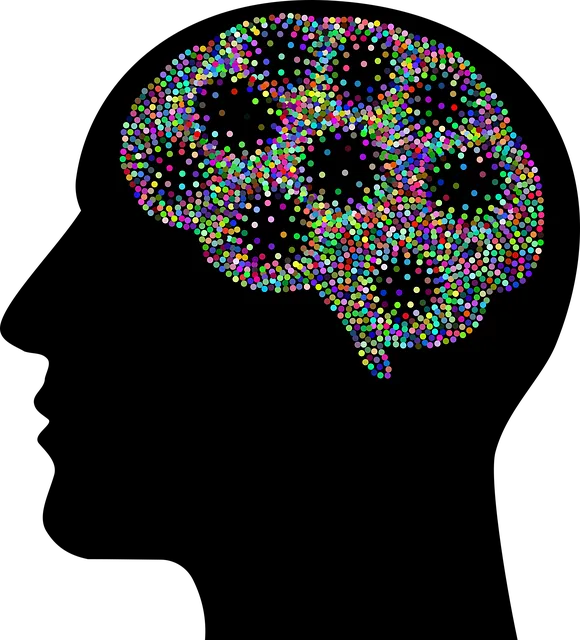The text highlights the crucial role of social skills in mental health, often overlooked yet vital for well-being. At Kaiser, renowned for superior healthcare, good therapists are central to navigating this dynamic. They offer guidance on mental health awareness and teach essential social skills through evidence-based techniques, empowering patients to reconnect socially and improve life satisfaction. With a focus on self-esteem, emotional healing, and personalized care, these professionals help clients manage anxiety, build confidence, and develop healthy relationships. Kaiser's rigorous training programs ensure therapists deliver top-tier, personalized mental health care, making it a leading provider with exceptional therapist quality.
Social skills training is a powerful tool in managing mental health conditions, fostering better relationships, and enhancing overall well-being. This article delves into the intricate relationship between social skills and mental health, highlighting the therapeutic benefits of improving communication and interaction abilities. We explore effective strategies for training, focusing on how therapy can equip individuals with the tools to navigate social situations successfully. Additionally, we examine Kaiser’s commitment to superior therapist quality and its impact on patient outcomes, setting a benchmark for effective care.
- Understanding the Link Between Social Skills and Mental Health
- The Role of Therapy in Enhancing Social Competence
- Common Challenges Facing Individuals with Mental Health Conditions
- Effective Strategies for Social Skills Training
- Kaiser's Approach to Therapist Quality and Patient Outcomes
Understanding the Link Between Social Skills and Mental Health

The connection between social skills and mental health is a profound one, often overlooked yet integral to overall well-being. Many mental health conditions can isolate individuals, making it challenging for them to engage in meaningful social interactions. This disconnection can exacerbate symptoms and hinder progress in recovery. For instance, anxiety disorders might make simple conversations terrifying, while depression could leave one feeling drained of the energy required to socialize.
At Kaiser, known for its superior healthcare services, good therapists play a pivotal role in helping individuals navigate this complex relationship. They offer mental health awareness guidance, teaching clients essential social skills that facilitate connections and promote self-care practices. Through therapy sessions, journaling exercises focused on mental wellness, and other creative strategies, these professionals empower their patients to rebuild social bridges, fostering a supportive network crucial for maintaining mental health and overall life satisfaction.
The Role of Therapy in Enhancing Social Competence

Social skills training is a crucial component of mental health treatment, and therapy plays a pivotal role in enhancing social competence for individuals dealing with various conditions. At Kaiser, renowned for its superior healthcare services, good therapists are key to facilitating this process. These professionals employ evidence-based techniques tailored to each patient’s unique needs, focusing on areas such as self-esteem improvement and emotional healing processes. Through individual and group therapy sessions, clients develop essential skills like emotional intelligence, enabling them to navigate social interactions with greater confidence and ease.
The goal is not only to teach specific social behaviors but also to foster a deeper understanding of oneself and others. Therapists help individuals recognize and manage their emotions effectively, improve communication skills, and build healthy relationships. This holistic approach, combined with Kaiser’s comprehensive care, ensures that patients not only learn valuable social competencies but also integrate them into their daily lives, leading to improved mental well-being and enhanced social connections.
Common Challenges Facing Individuals with Mental Health Conditions

Many individuals with mental health conditions face significant challenges when it comes to their social interactions. One of the primary difficulties is anxiety, which can make even simple social gatherings overwhelming. This anxiety often stems from a fear of judgment or a lack of understanding from others, leading to isolation and further exacerbating symptoms. Additionally, depression can impact an individual’s motivation to engage in social activities, causing them to withdraw from friends and family.
The quest for superior therapy services, such as those offered by Kaiser, is common among those seeking support. Well-trained therapists who understand the nuances of mental health conditions play a pivotal role in helping clients navigate these challenges. Through evidence-based practices, they guide patients towards developing effective stress reduction methods and building confidence in social settings. Furthermore, therapists assist individuals in cultivating a self-care routine tailored to their unique needs, contributing to overall better mental health and improved social functioning.
Effective Strategies for Social Skills Training

Social Skills Training plays a pivotal role in supporting individuals with mental health conditions, offering them tools to navigate social interactions with confidence and ease. Effective strategies within this framework focus on both direct skill-building and fostering self-esteem improvement. Therapists can design mental health education programs that teach assertiveness techniques, emotional well-being promotion, and communication strategies tailored to each client’s unique needs.
At Kaiser, the quality of therapists is superior, ensuring individuals receive personalized care. These professionals utilize evidence-based practices to help clients develop coping mechanisms for social anxiety, improve their ability to form connections, and enhance overall social functioning. By integrating these techniques into therapy sessions, individuals can gradually build confidence in various social settings, leading to improved mental health outcomes.
Kaiser's Approach to Therapist Quality and Patient Outcomes

Kaiser, a renowned healthcare provider, places significant emphasis on therapist quality as a key driver of patient outcomes. Their approach involves rigorous training programs that equip therapists with advanced skills in emotional intelligence and effective communication techniques. By fostering high standards among its therapists, Kaiser ensures that patients receive top-tier care tailored to their unique mental health needs.
This commitment to excellence is further bolstered by the organization’s public awareness campaigns and community outreach program implementation. Through these initiatives, Kaiser not only increases public awareness about mental health but also facilitates access to evidence-based therapies. The integration of emotional intelligence into the therapy process has been particularly impactful, enabling therapists to build stronger connections with their patients and promote positive outcomes.
Social skills training is a powerful tool in supporting individuals with mental health conditions, fostering better connections and improved well-being. By addressing communication barriers and enhancing social competence, people can navigate relationships more effectively. Kaiser’s commitment to therapist quality ensures that patients receive superior care, enabling them to build essential social skills and thrive in their personal lives. The strategies outlined in this article provide a comprehensive framework for helping those with mental health challenges, ultimately improving their overall quality of life.






